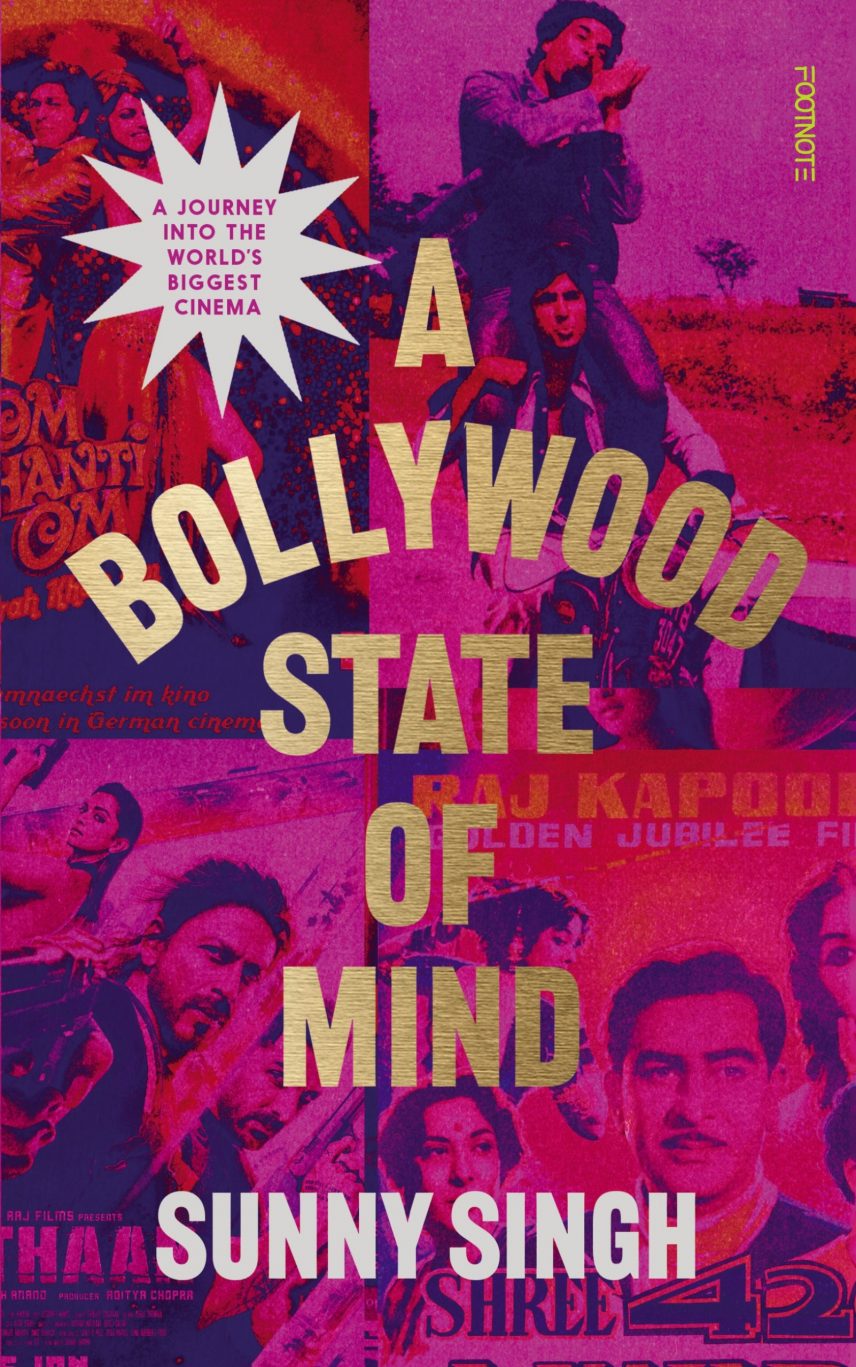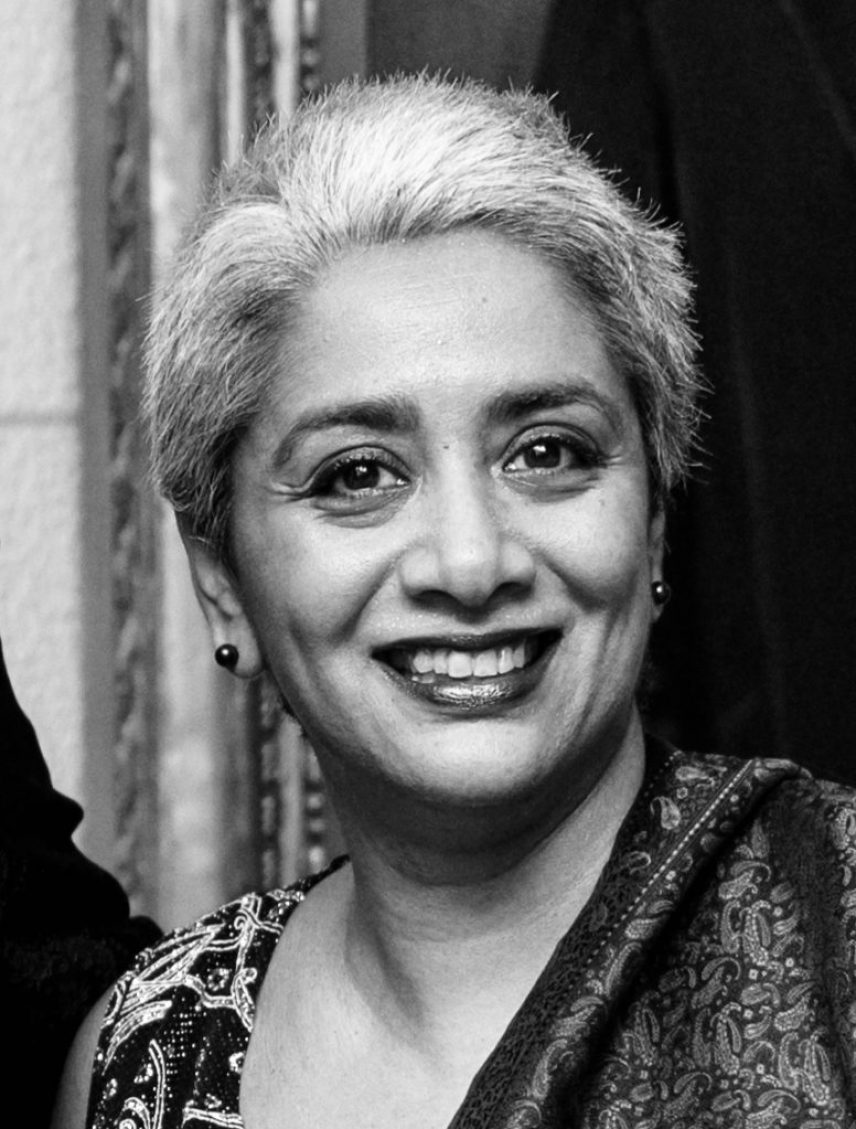
‘Prepare to laugh, sob and dance: this lively history of Indian cinema is imprinted with the memories of a life-long cinephile.’ The Telegraph
‘A gem of a book and a must for film lovers everywhere’ Abir Mukherjee
‘My biggest recommendation of the year. Sunny Singh’s honouring of story and history shine through powerfully – an exquisitely enjoyable read’ Nikita Gill
Like all Indians, Sunny Singh was born and brought up in a country of film fanatics. She and her friends waited impatiently for the latest releases, listened to the songs on radio and wore clothes inspired by those seen on screen. They learned about India and the world, determined their enemies and friends, and chose their moralities thanks to films.
A Bollywood State of Mind is a personal, intellectual and emotional journey which crosses five continents and 50 years of modern Indian history and cinema and explores why Bollywood means so much to so many across the globe. Sunny describes how this exceptional cinema retains its hold on the national imagination, how Bollywood has enhanced India’s global standing in the 21st century, and how its characteristics endure despite the social and political changes.
Ranging over history, aesthetic theory and politics, A Bollywood State of Mind explores encounters with Bollywood in the market places of Dakar and Marrakesh, in the nightclubs of New York, Barcelona and Mexico City, and in the ruins of Egypt’s Valley of the Kings, Petra and beyond. It shows how the pioneers and heroes of Bollywood cut across national, linguistic and cultural lines not only in India but in far reaches of Somalia, Peru, Malaysia and Russia.
”Bright, brilliant and beautifully researched, this glorious book is my biggest recommendation of the year. Sunny Singh’s honouring of story and history shine through powerfully – an exquisitely enjoyable read!” – Nikita Gill
”Singh’s book is an unrivalled celebration of Bollywood films…the nostalgia unfurled the sepia vignettes of memory from a distant almost forgotten past into the glittering joy of the present day” – Shobna Gulati
”Part history, part personal reminiscence, A Bollywood State of Mind is a thoughtful, magical journey through the annals of the world’s largest, most spectacular and most vivacious film industry. A gem of a book and a must for film lovers everywhere” – Abir Mukherjee
”A masterful memoir, Singh’s love story with Bollywood is one told with precision, authority and panache, capturing the all-singing, all-dancing joy and wonder of Indian cinema” – Monisha Rajesh
”A deeply personal, deeply political dive into one of the most popular forms of entertainment today. Part memoir, part film criticism, part cultural excavation, Singh writes with passion, clarity and introspection” – Nikesh Shukla
Sunny Singh is a writer, novelist, public intellectual, and a champion for decolonisation and inclusion across all aspects of society. In 2017 she launched the celebrated Jhalak Prize for literature by writers of colour. She is also a founder of the Jhalak Foundation that is focused on a range of literary, artistic and literacy initiatives in the UK and beyond.
She is the author of three critically acclaimed novels – Nani’s Book of Suicides, With Krishna’s Eyes and Hotel Arcadia.
Sunny was born in Varanasi, India. She read English and American Literature at Brandeis University in the USA before gaining a Masters in Spanish Literature from Jawaharlal Nehru University, Delhi and a PhD from the Universitat de Barcelona. Sunny lives in London where she is Professor of Creative Writing and Inclusion in the Arts at the London Metropolitan University.

| Cookie | Duration | Description |
|---|---|---|
| cookielawinfo-checkbox-analytics | 11 months | This cookie is set by GDPR Cookie Consent plugin. The cookie is used to store the user consent for the cookies in the category "Analytics". |
| cookielawinfo-checkbox-functional | 11 months | The cookie is set by GDPR cookie consent to record the user consent for the cookies in the category "Functional". |
| cookielawinfo-checkbox-necessary | 11 months | This cookie is set by GDPR Cookie Consent plugin. The cookies is used to store the user consent for the cookies in the category "Necessary". |
| cookielawinfo-checkbox-others | 11 months | This cookie is set by GDPR Cookie Consent plugin. The cookie is used to store the user consent for the cookies in the category "Other. |
| cookielawinfo-checkbox-performance | 11 months | This cookie is set by GDPR Cookie Consent plugin. The cookie is used to store the user consent for the cookies in the category "Performance". |
| viewed_cookie_policy | 11 months | The cookie is set by the GDPR Cookie Consent plugin and is used to store whether or not user has consented to the use of cookies. It does not store any personal data. |